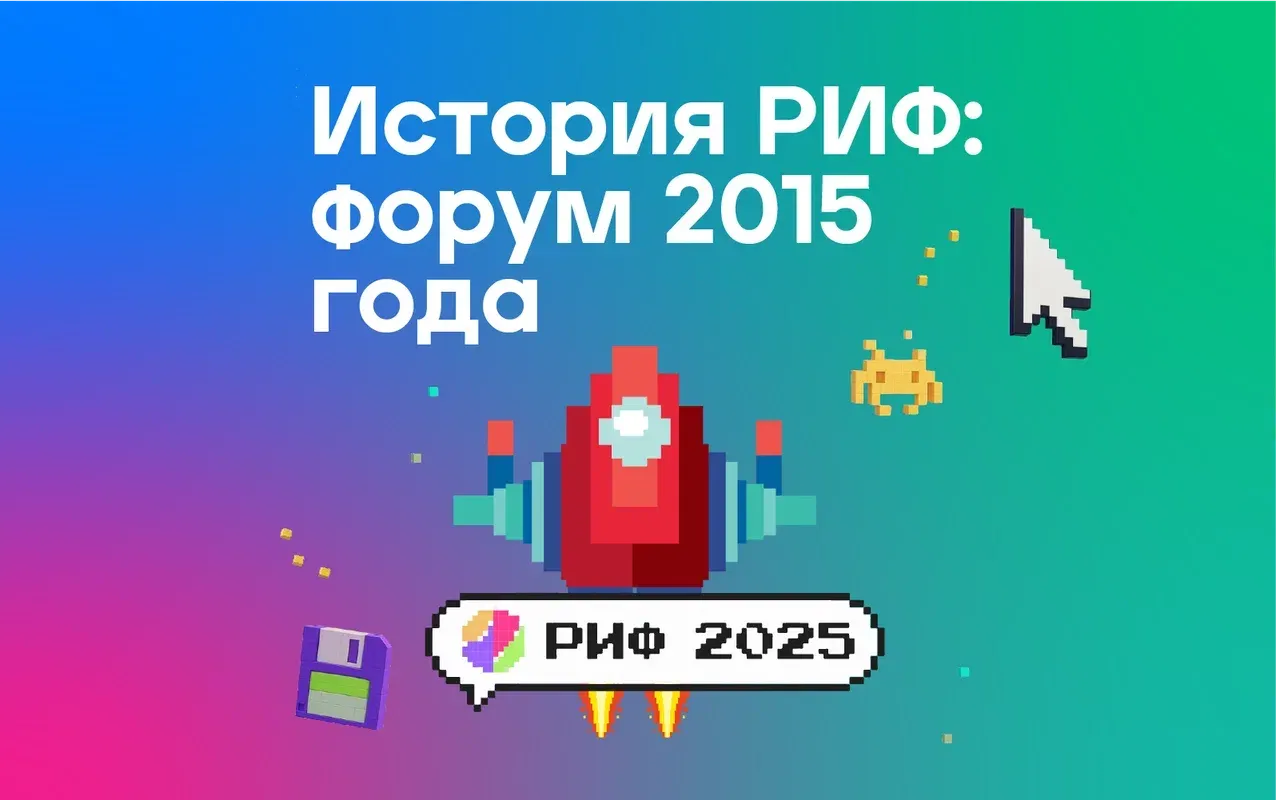RIF+KIB 2015: In the Realm of Startup Cat
The 19th Russian Internet Forum (RIF+KIB) convened April 22–24 in the Moscow suburbs, drawing 10,000 in-person attendees and over 20,000 online viewers.

Power Plays: State Embrace of the Internet
At the forum’s opening, Prime Minister Dmitry Medvedev greeted participants via his official social media accounts, signaling that the government is watching closely. But the real kickoff came when Minister Nikolai Nikiforov delivered a keynote on state efforts to extend high-speed Internet access to small towns and villages — an initiative now framed as a matter of national infrastructure.
The message was clear: the internet has been officially elevated to strategic sector status. Nikiforov acknowledged deep structural challenges — especially a shortage of skilled IT professionals. In response, the government had completed roughly half of its planned technology parks by end of 2014, distributed across multiple Russian cities. At the same time, state-subsidized places in university IT programs jumped from 25,000 to 42,000 seats in one year.
Nikiforov also alluded to conversations with BRICS counterparts, aiming to lower trade barriers within the bloc’s digital economies. Behind such diplomacy lies a broader goal: mutual market access and platform cooperation.
One of 2014’s landmark legal acts, the law mandating that personal data be stored within Russia, was framed by the minister as a defensive measure — one that could prevent the Russian Internet segment from being cut off from the global Web. Then came the law on bloggers, designed to legalize and legitimize the blog economy. The newly formed Institute for Internet Development (IIR) also entered the spotlight: legislative proposals had already been submitted to support Russian software producers and protect national interests in the digital domain.
The Numbers Don’t Lie
Sergey Plugotarenko, head of RAEC, delivered a data-rich presentation under the title 'Runet Today: Analytics, Figures, Facts.' His figures painted a story of continued growth and uneven geography:
- The Russian Internet audience reached 73.8 million people; 52 % of them go online daily.
- 28 % of users live in rural areas and small towns; Internet penetration in rural regions had risen above 50 %.
- Mobile Internet usage expanded by one third over the previous year, and mobile data traffic surged 1.5×.
- On average, users spent 126 minutes per day online; 26 % of that time on social networks, 12 % on video, 7 % on email, 3 % on news.
- Meanwhile, the display advertising market saw a 5 % contraction, despite earlier forecasts of 7 % growth.
RIF also turned its lens to those 'left behind' by the digital wave: citizens over 55, rural residents, and those without higher education remain under-engaged in Russia’s digital economy.
Throughout three days, nine parallel tracks dissected critical themes: import substitution, social media, e-commerce, state–industry interaction, Runet’s economics, and changing media consumption. One recurring conclusion: regulation alone cannot shield Runet from the influence of global internet giants. Neither data localization nor domestic data centers can fully insulate Russian traffic from being flipped off abroad.
In a historic move, for the first time in 21 years of the .ru domain, the president proposed drafting a sector 'road map' stretching to 2030. The mere existence of IIR and a fresh IIR 'Directors’ Club' session at RIF signal that the state seeks closer engagement with this fast-evolving sector. Priority tasks for IIR: import substitution in government bodies, retail export of Russian IT products, and curbing involuntary subscriptions to paid mobile services.
In principle, any citizen can join the institute’s expert community — a possible digital-era elevator for ambitious minds. In fact, recruitment of experts occurred live during the forum.
One of the thorniest problems: user protection and digital literacy. After two years of regulatory experiments, the bottleneck remains low computer proficiency among Russian netizens. To counter that, the Regional Center for Internet Technologies was relaunched. Four flagship initiatives rolled out: Voice of Runet (user surveys), a hotline, BUDUGURU.ORG, and a Digital Literacy Index.
The hotline aggregates and forwards citizen complaints — on data theft, rights violations, and cyber fraud — to proper agencies, while providing consultations to affected individuals. BUDUGURU.ORG aims to harness distributed human capital: recruiting talented youth across regions and connecting them with IT opportunities. Given the acute shortage of skilled personnel, this is a high-stakes mission.
Online voting tools ahead of the forum let potential attendees craft wish lists of favorite tech teams and speakers. At the main evening party, the headliner was rock band Knyazz. But their popularity was eclipsed by a local legend: Startup the Cat, the event’s mascot. For the days of RIF, he swapped mouse-catching duties in the pavilions for accepting offerings of shashlik from guests.
Why It Matters: Technology as Public Good
Beyond spectacle and stately speaking, the most important story is in the infrastructure and institutions being built. By investing in broadband for remote areas, Russia is making a bet: that connectivity is a backbone of social inclusion, economic opportunity, and national sovereignty.
Expanding IT education and tech parks isn’t just about feeding software firms — it’s about turning talent into tangible progress for citizens in Rostov, Tyumen, or even Siberia. The data localization law may have political arguments, but it also represents a move to protect citizens’ data — and prevent external outages from cutting off services within Russia.
Meanwhile, IIR’s initiatives in import substitution, expert inclusion, and digital literacy all push toward a more resilient, self-reliant ecosystem. Indeed, as Plugotarenko’s numbers show, the Runet domain is no niche: millions of lives are already woven into its digital fabric.
In short: RIF+KIB 2015 wasn’t just a gathering of geeks and startups. It was a statement that Russia is quietly — and pragmatically — building its role as a tech power, with tools, policy, and cultural infrastructure that aim to benefit millions, not just insiders.

